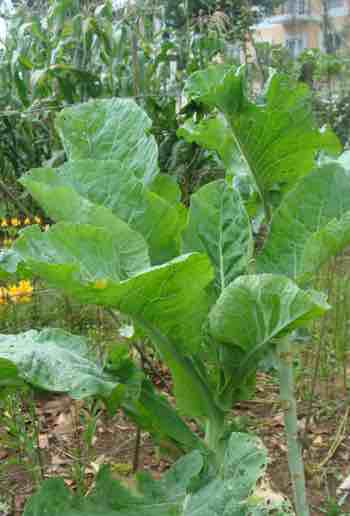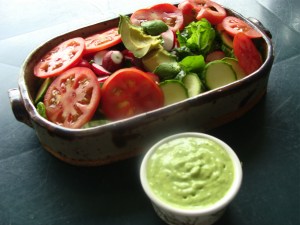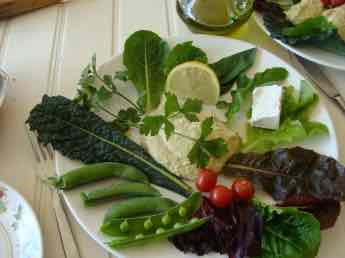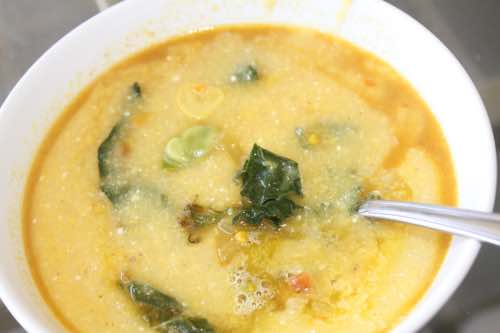- Homepage
- Our green garden
- Eat Your Greens
Eat your greens
Eat your greens is for those who desire emphatically not to go blind when they get older; and are willing to do something about it now. There is no cure; only prevention makes sense.
The major causes of blindness are a deficiency of three nutrients called lutein, zeaxanthin and beta-carotene; and chronic excessive refined carbohydrate consumption spawning diabetes. Glaucoma and macular degeneration cannot be cured; eat your greens and gourds like butternut.
Enjoy your greens was the initial title of this column but I decided to rephrase it; we ignore them at our peril so we eat them whether we like them or not.
So what is it about our greens that makes them an imperative?

This page was last updated by Bernard Preston on 5th October, 2024.
Eat your greens
Eat your greens because lutein from your food helps to prevent macular degeneration, glaucoma and cataracts; it has been shown to be far more effective and cheaper than from a pill.
Secondly those of you who read the Witness avidly will have recently seen the grave consequences of colorectal tumours. Your greens contain the very-necessary fibre that keeps the stool soft and easy to pass; visits to the loo become a daily, two minute affair.
Then your greens are loaded with the vitamins, minerals and phytochemicals that keep us in optimal wellness. Because these essential nutrients vary substantially from one variety to another it is important to enjoy as wide a spread as possible.
The darker the colour the better so iceberg lettuce rates very low, for example.
Minerals in your greens
Known
collectively as dark-green leafy vegetables (DGLV), beet tops for
example are loaded with calcium and magnesium; both these minerals are
essential for bone strength, the prevention of arthritis and protection against heart disease.
Consider then the vitamin called folate which every single woman of child-bearing age must have daily. Before she even knows she is pregnant, the neural tube is forming; should she be low in this B9, the foetus may develop very serious defects such as spina bifida and cleft lip.
The performance of our children in school is directly related to folate intake; and is absolutely essential in many different chemical processes in the body.
Lutein and zeaxanthin in your greens
Lastly your greens are amongst the best sources of carotenoids in the body. The decision to write this page was sparked by a visit to the optician.
Said he after examining me carefully, "You obviously eat a lot of greens."
I was astounded; how could he possibly have known? Said he, "You have absolutely no sign of cataracts or macular degeneration which is unusual at your age. You are clearly getting more than enough lutein and zeaxanthin from your food." So I went on to tell him about Bernie's delicious spinach dip that we enjoy regularly.

These two phytochemicals are found in very high concentrations in the cones of the retina; a deficiency of either is the major cause of eye-diseases related to aging.
I could write pages on why dark-leafy green vegetables are called functional foods; they promote wellness and help to prevent disease. There is masses of scientific evidence confirming it. We and our children need to eat them daily whether we enjoy them or not.
The material expressed on this page is gleaned from the nutritional and environmental literature; it is clearly referenced. A plain distinction is made between the author's opinion and that which is scientifically proven. When in doubt consult your health professional.
To suggest a correction or clarification, write to Dr Bernard Preston here. Contact.
I went to town on preparing my lunch yesterday but it was really not that atypical. You will spy several different types of lettuce, sprigs of parsley and fresh coriander; then there are leaves of kale, baby spinach and red sorrel.
Also on the platter are beet tops, fresh green peas and homemade hummus; and bread made with 100% wholewheat flour, butter and cherry-guava jelly. The salad, drizzled with olive oil and lemon juice makes a delicious meal.
Eat your greens daily preferably some raw with a little fat to increase the absorption of the carotenoids; and others lightly-steamed.
Chew your greens thoroughly to release those carotenoids.
Read more about lutein macular degeneration. Discovering about the millions of needlessly blind people[1] brought me much disquiet; and confirmed that I was doing the right thing by eating my greens. Will you join me?

Is this the lunch of an epicure or a food snob? You be the judge; either way I don't fancy doctors poking sharp instruments into my eyes.
Beta-carotene in your greens
Beta-carotene is the nutrient found in the green leafy vegetables, orange and yellow foods; it consists of two vitamin A molecules linked together.
It's a first cousin of lutein and zeaxanthin.
A deficiency of this vitamin is the cause of blindness in half a million children every year. That translates in over a thousand kids every single day simply because they did not have access to foods like spinach, carrots and pumpkin.
Diabetes
Diabetes is the other great cause of blindness; it affects one in four of those living with the disease[2].
Almost 50% of those enjoying typical supermarket food are prediabetic.
A healthy diet for prediabetes means strictly limiting refined carbs and exercising daily.
Iron in your greens
Dark-green leafy vegetables are also rich in iron.
If you ever consider being a blood donor then these foods rich in iron are even more important; one day you or someone in your family could be in dire need.
Less than one percent of people are blood donors; each pint given saves three lives.
It is interesting that chewing your greens not only has an abrasive function that helps to cleanse our teeth from stains but furthermore provides a protective coating that protects them from acidic foods that would attack the enamel.
Eat your greens whether you like them or not; the alternative is too ghastly to contemplate.
enrich your grits with greens
 Many ancient cultures enrich their grits
Many ancient cultures enrich their gritsTrue wholemeal porridge makes a wonderful start to the day; unlike tasteless cornflakes from which the nutrients and natural flavours have been extracted.
But the porridge is starchy and many of us are prediabetic; so it makes a lot of sense to enrich your grits with greens and other vegetables. It slows the release of the carbs from the stomach giving greater satiety and reduces any threat of a blood glucose spike.
When browsing use right click and "Open Link in New Tab" or you may get a bad gateway signal.
Newsletter
Our newsletter is entitled "create a cyan zone" at your home, preserving both yourself and Mother Earth for future generations; and the family too, of course. We promise not to spam you with daily emails promoting various products. You may get an occasional nudge to buy one of my books.
Here are the back issues.
- Lifestyle and ideal body weight
- What are ultra-processed foods?
- Investing in long-term health
- Diseases from plastic exposure
- Intensive lifestyle management for obesity has limited value
- A world largely devoid of Parkinson's Disease
- The impact of friendly bacteria in the tum on the prevention of cancer
- There's a hole in the bucket
- Everyone is talking about weight loss drugs
- Pull the sweet tooth
- If you suffer from heartburn plant a susu
- Refined maize meal and stunting
- Should agriculture and industry get priority for water and electricity?
- Nature is calling
- Mill your own flour
- Bake your own sourdough bread
- Microplastics from our water
- Alternative types of water storage
- Wear your clothes out
- Comfort foods
- Create a bee-friendly environment
- Go to bed slightly hungry
- Keep bees
- Blue zone folk are religious
- Reduce plastic waste
- Family is important
- What can go in compost?
- Grow broad beans for longevity
- Harvest and store sunshine
- Blue zone exercise
- Harvest and store your rainwater
- Create a cyan zone at your home
Did you find this page interesting? How about forwarding it to a friendly book or food junkie? Better still, a social media tick would help.
- Homepage
- Our green garden
- Eat Your Greens
Address:
56 Groenekloof Rd,
Hilton, KZN
South Africa
Website:
https://www.bernard-preston.com